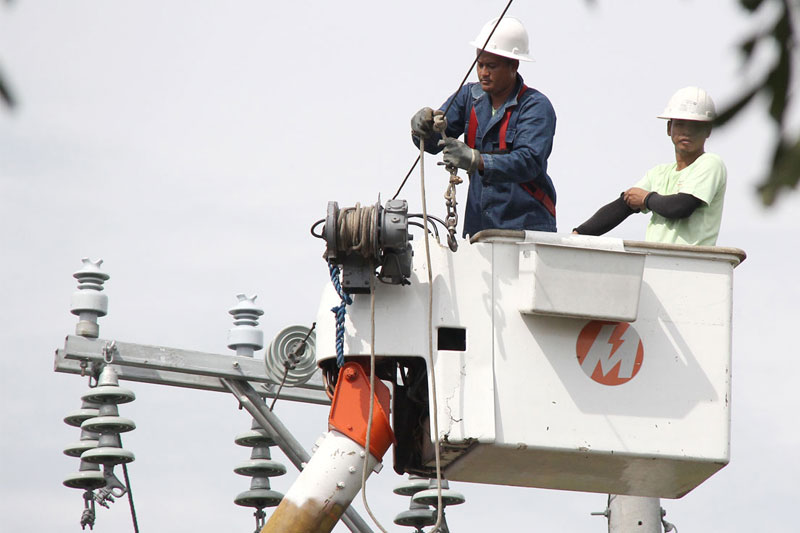Meralco expects higher rates next month

“We may recall that the January generation charge reduction was largely due to lower capacity fees following the annual reconciliation of outage allowances. As in prior years, we expect capacity fees of PSAs (power supply agreements) to normalize in February,” Meralco head of utility economics Lawrence Fernandez said. Presidential Photo
MANILA, Philippines — Manila Electric Co. (Meralco) expects electricity rates to go up next month as capacity fees from power generators start to normalize along with factors pushing up the generation charge.
“We may recall that the January generation charge reduction was largely due to lower capacity fees following the annual reconciliation of outage allowances. As in prior years, we expect capacity fees of PSAs (power supply agreements) to normalize in February,” Meralco head of utility economics Lawrence Fernandez said.
Capacity fees are determined through the annual reconciliation of outage allowances done at the end of each year under the contracts approved by the Energy Regulatory Commission.
For instance, if power generators do not exceed their outage allowance, their capacity fees are already paid in full and would no longer be reflected for the month of January.
The normalization of capacity fees will push up the generation charge, Fernandez said.
“Hence, we see an uptick in the generation charge next month, though we still need to await final supplier bills to see the effect of such factors as WESM (wholesale electricity spot market) charges, forex (foreign exchange) rate, fuel prices and others,” he said.
Also driving Meralco rates higher is the impact of the implementation of the Tax Reform for Acceleration and Inclusion (TRAIN) law.
Earlier, Fernandez said electricity rates would be pushed up by the implementation of the coal excise tax and the removal of the value added tax (VAT) exemption of the National Grid Corp of the Philippines (NGCP) under TRAIN.
Under Republic Act 9511, NGCP was exempted from paying income tax and VAT. This was repealed in Section 86 of the TRAIN, subjecting NGCP to the VAT provision under the National Internal Revenue Code.
Based on Meralco’s computation, the VAT on transmission charge would translate to an additional seven centavo per kilowatt-hour in its rates, Fernandez said.
For the impact of the coal excise tax, Meralco is awaiting the response of suppliers to compute the increase in electricity rates but it has estimated an additional one centavo per kwh at P50 per metric ton.
Under the TRAIN Law, what was approved was a lower coal excise tax of P50 per metric ton in 2018, P100 in 2019, and P150 in 2020 compared with the original Senate proposal of a “100-200-300” hike scheme.
However, the Department of Energy (DOE) said the impact of coal excise tax on electricity rates is expected to reflect on consumers’ electricity bills during the summer season.
This is because coal plant generators maintain coal reserves good for at least 30 days, DOE Undersecretary Felix William Fuentebella said earlier.
- Latest
- Trending






























